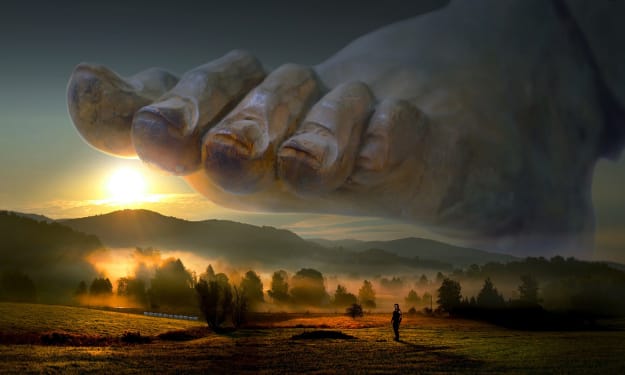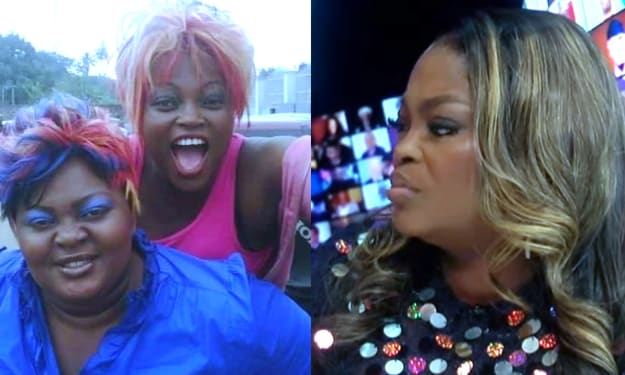Coming Together
How can we as humans come together, if we don’t understand each other?

I was sitting at work today thinking about a show on Disney+ that I started watching recently. It’s kind of a fictionalised documentary series about the Wu Tang clan (a rap group from the 90s). This little piece has nothing to do with this group, or even music… it just triggered the thought in my mind.
How can we as humans come together, if we don’t understand each other?
The show I was watching depicted a neighbourhood where the members of the Wu Tang Clan lived; their lives were shadowed by drug dealing, guns and violence. Things I haven’t really seen in my life, which triggered the question above. I’ve had this thought many times in the past, but never truly contemplated it.
Depending on where you live in the world, you could have a completely different experience of life than others who live in a different part of the world, which in turn would shape your mind in a completely different way.
Most of us living in the “western world” are privileged to have relatively small issues to contend with in our daily lives, compared to, for example, people living in villages of developing countries who might be thinking about how to carry water for miles on their backs to their village.
It becomes very easy to us to be involved in our own lives, and not think beyond what is in front of us, and that is just part of human nature. We basically put blinders on and stick to what we know; I, for example, wake up around the same time every day, get ready and then leave for work. I come back home, eat, watch a little TV (or play on the PlayStation) and then eventually sleep. I don’t exactly think about anything outside of my immediate vision. I’m sure it’s the same for most of us.
We almost forget that other people have a different experience in life. I’m not simply talking about the developed versus under-developed countries here, people can have dramatically different lives even within the same city.
For example, when my family first came to the UK, we lived in an area mostly populated by other immigrants; we were surrounded by others in a similar situation and of similar culture. I started attending school and learning English of course, and interacting with the culture that is foreign to me. There were aspects of culture in this new city that I couldn’t understand, just as they couldn’t understand some of mine.
I came to the UK in my early teens and didn’t experience much of life, so when the idea of going out with friends to the cinema and grabbing some food afterwards was presented to me, I couldn’t understand it at first; growing up, I would go out near our home and play football with friends, and sometimes we would go to each other’s houses to play in PlayStation tournaments (which were fun for sure), but we didn’t really go to cinemas or amusement parks together… we had these kinds of trips with our own families. It is a small thing, but I really couldn’t understand that this was something we can do with friends at that age.
At the same time, some friends couldn’t understand how I couldn’t eat just anything, and had certain restrictions. As a Muslim, there are certain food items I cannot eat (pork for example), and the food I eat has to be Halal. They couldn’t understand how I can eat chicken from one place, but couldn’t eat it from others, because they couldn’t understand the concept of “Halal”.
Now let’s go a little more macro. Even within the developed world, you would find differences in living styles and life experience and that can be attributed to differences in culture, the geographic location and so on.
Food is generally involved in social gatherings and, depending on where in the world you are, this can take many different forms: barbeques in the US are generally associated with people gathering, where the UK doesn’t really have something equivalent, except perhaps afternoon tea (if we are to stick to the stereotype) or the pub. In the middle east it would be gathering around a big plate of rice and lamb, drinking Arabic coffee and eating dates, or in some countries simply gathering to smoke shisha and play card games.
There are so many differences in cultures and traditions around the world that can prevent us from understanding each other. These cultures and traditions play a massive role in shaping who we are as people and changing our view on life, which can make it difficult to sympathise with others who do not live the same type of life.
I have met many people who are completely ignorant about different cultures which can cause awkward social situations. In the modern world, it is quite easy to come across people of different backgrounds (whether they are simply from different life circumstances, or from a different culture altogether) and I think the key to living harmoniously is to understand each other’s backgrounds, even a little. I’m not saying we should become experts in each other’s lives, but having basic understanding can come a long way.
Generally, because of technology, the world has become a smaller place as we have access to so much information about things we don’t know. More specifically places we don’t know. Now what we need to do is go a little into the specifics; understand a little about ideologies people have so that we can have open discussions without being unreasonably dismissive.
The more knowledge we have, the more open we can be about any subject matter. Even though the internet can be filled with nonsense, it is a great avenue to gain knowledge and understand each other a little bit.
I’ve seen many different types of writers here on Vocal with interesting viewpoints. Their personality and ideas can be evident from their writings (articles, stories, poems etc.) and they have inspired me in different ways to either think differently about a certain subject, or learn a new way to express my thoughts in my writings.
I read an article from another writer on Vocal where they were talking about warning tags in regards to stories with violence, gore and other subject matter that might trigger unwanted reactions. I honestly never thought about how writing can trigger such reactions, because I haven’t really been in that situation myself. I don’t generally like horror as a genre anyway because I find it boring most of the time (but if the story is interesting, I wouldn’t mind a little gore), but I’m sure some of my writing might feel a little dark to some readers without me knowing. In a lot of my stories and poems I seem to have the theme be pessimistic but bring in hope at the end; I’m not sure why exactly I do that, but I did start noticing it recently when I re-read my poems in particular.
With this article that I read, I learned that some readers do get affected by such content, and while I understand that concept as it is quite obvious (violence and gore can of course incite a negative reaction to the reader), I wouldn’t have thought how deep these negative reactions were unless someone told me. Like I said earlier, I was in my own world, in the writing sense at least, that I couldn’t see how others might react to some of my writing simply because I myself wouldn’t have reacted that way. I know that if someone wrote this article, there must be others feeling the same way because no matter how unique we want our thoughts to be, there are always people out there with similar thought, or similar ideas.
This is what I was talking about in regards to not understanding each other enough. Until I read that article, I wouldn’t have stopped to think how my writing would affect others (equivalent to not understanding someone’s way of life or culture). With a little knowledge (in the form of that article), I can try to adapt and keep in mind this information whenever I write. Truthfully, I don’t write overtly violent stories so it might be difficult to discern what to warn people about, but I will at least keep it in mind and try to apply it to my writing.
Living harmoniously doesn’t have to be hard. We just need to be curious and understand each other a little bit more.
About the Creator
Mohammed Darasi
I write fiction, poetry and occasional articles about interesting topics. I recently created a website (just because) which I will be posting my writing in (among other things). it would be great if you check it out. https://mindpit.co.uk/
Enjoyed the story? Support the Creator.
Subscribe for free to receive all their stories in your feed. You could also pledge your support or give them a one-off tip, letting them know you appreciate their work.






Comments (1)
You cover a lot of ground here Mohammed and it's all really valuable advice and ideas you get into. I wonder if your relatively common (for you I mean) motif of writing darker (I'm not totally sure I'd use the term 'pessimistic' to describe your writing) stories that end with a hopeful or otherwise positive conclusion might not be a way of coping with a world full of constant bad news and dire predictions? Seeing life through the eyes of another is almost certainly the greatest hope for our species, so there's a definite connection between your themes here. Well done!